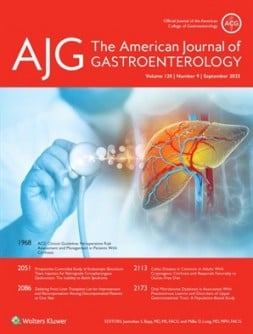The September 2023 issue of The American Journal of Gastroenterology features a significant new guideline from the American College of Gastroenterology (ACG) focused on the perioperative risk assessment and management of patients with cirrhosis. This guideline addresses the heightened surgical risks faced by these patients, advocating for a multidisciplinary approach to enhance surgical outcomes.
The ACG recommends a thorough preoperative evaluation, comprehensive perioperative care, and meticulous postoperative follow-up for patients with liver disease. Key recommendations emphasize the importance of assessing liver disease severity alongside other health issues and specific surgical risks prior to any surgical intervention.
Another aspect of the guideline highlights the need for optimizing preoperative health through tailored nutritional plans, managing portal hypertension, correcting any blood clotting issues, and addressing conditions such as frailty and sarcopenia. It also underscores the advantages of performing surgeries at specialized centers, fostering informed decision-making, and utilizing a collaborative, team-based approach for better patient outcomes.
Key Studies Featured in the September Issue
The latest issue also includes several noteworthy studies pertinent to gastroenterology, including a prospective controlled study on retrograde cricopharyngeus dysfunction. Conducted by Sanagapalli and colleagues, this study explored the use of endoscopic botulinum toxin injections as a treatment for individuals who experience difficulty belching due to a condition known as retrograde cricopharyngeus dysfunction (R-CPD). The findings revealed that 92% of patients treated with botulinum toxin injections regained the ability to belch after three months, significantly enhancing their quality of life compared to the control group, which showed no improvement.
Another critical study, led by Mahadevan, addressed the management of pregnancy in women with inflammatory bowel disease (IBD). This research highlighted the risks associated with pregnancy in IBD patients and the challenges posed by inconsistent information regarding safe medications. A Global Consensus Consortium comprising 39 IBD experts and seven patient advocates developed 34 GRADE recommendations and 35 consensus statements aimed at improving maternal and infant health outcomes globally.
Additionally, a study analyzing the effects of oral proton pump inhibitors (PPIs) on reducing delayed bleeding risks following upper gastrointestinal endoscopic procedures found that PPIs significantly lowered bleeding risk in gastric endoscopic mucosal resection (EMR) and gastric endoscopic submucosal dissection (ESD). However, the study indicated that PPIs did not have the same protective effect for esophageal EMR, esophageal ESD, or percutaneous endoscopic gastrostomy (PEG), suggesting a targeted approach to PPI use based on the type of procedure.
As these studies demonstrate, the September issue of The American Journal of Gastroenterology not only introduces crucial guidelines for the management of cirrhosis patients but also offers insights into innovative treatments and best practices in gastroenterology. For those interested in accessing articles from this issue or past publications, requests can be made through the ACG. The organization is also available to connect journalists with study authors or external experts for further commentary on these findings.
Founded in 1932, the American College of Gastroenterology serves over 20,000 members from 86 countries, dedicated to promoting high-quality, personalized digestive health care. The College focuses on advancing patient care, education, and research while supporting clinicians in their professional development. More information is available at www.gi.org.





































































